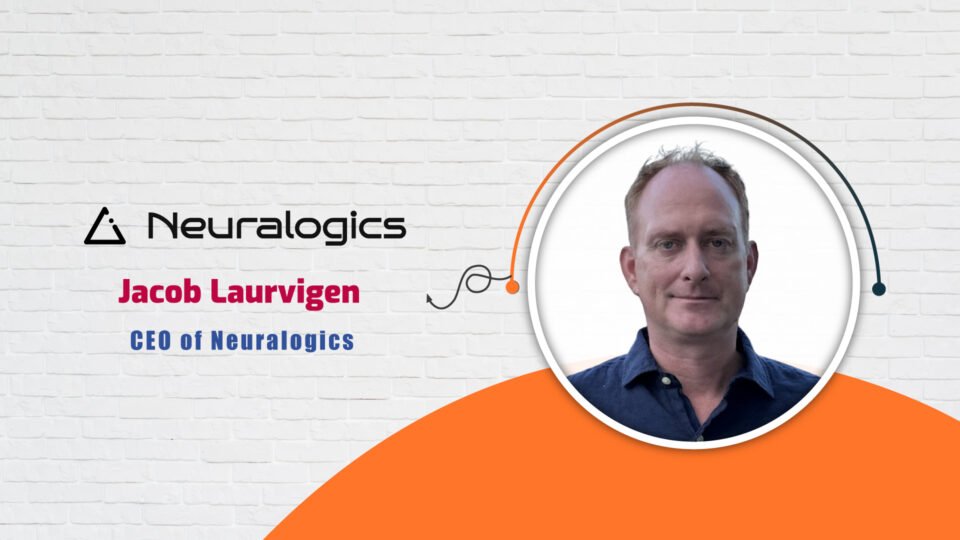Explore insights from Jacob Laurvigen, CEO of Neuralogics, on AI’s transformative potential, industry disruptions, and democratizing innovation with tools like Henrik.ai.
Hi Jacob, we’re delighted to have you at AITech-Park! Can you please start by sharing your journey to becoming CEO of Neuralogics?
What motivated you to focus on AI and its potential to transform industries? Since I was young, I’ve been driven by the potential of technology to bring ideas to life. Growing up, I saw brilliant ideas fade away, not because they lacked value, but because people didn’t have the time, money, or technical skills to turn them into reality. As an entrepreneur, I’ve always been motivated by the question, “What if we could make the gap between imagination and creation disappear?” That question has followed me throughout my journey, and it’s the core reason I founded Neuralogics.
AI is poised to lead the next industrial revolution. From your perspective, which industries will experience the most significant disruption, and how will AI reshape them?
AI is set to disrupt almost every industry, we’re focusing on the software development industry because it’s the backbone of innovation across all sectors. Traditional software development is time-consuming, expensive, and often inaccessible to those without specialized skills and it’s the main inhibitor for innovation.
You’ve expressed concerns about over-regulating AI. Why do you believe we should focus on accelerating AI’s growth, and how do you see this benefiting society in the long term?
Some rational regulation is essential. I believe the risk of over-regulating AI could stifle innovation at a time when we are on the brink of tremendous breakthroughs. The potential of AI to solve some of society’s most pressing challenges is too significant to slow down with excessive caution mostly based on unrealistic scenarios of a super intelligence taking over the world. We need a balanced approach that allows AI to grow while ensuring ethical safeguards, but our focus should remain on accelerating its development for the benefit of all.
How will tools like Henrik.ai democratize AI, allowing more individuals to innovate and create without traditional barriers?
Henrik.ai is designed with a fundamental belief that innovation should not be limited by technical skills, resources, or access. Traditionally, creating software has required a deep understanding of coding, large budgets, and development teams. These barriers prevent countless people from turning ideas into reality. Henrik.ai changes this by making the process of building software as simple as describing what you want. It’s a tool that empowers anyone regardless of their technical background to create fully functional applications.
You’ve advocated for purpose-driven AI. How do you think AI built to solve real-world problems will integrate into daily life and enhance human productivity?
Purpose-driven AI will blend into our daily lives, automating routine tasks and amplifying our capabilities. It’s about solving real-world problems, whether it’s streamlining workflows, enhancing decision-making, or enabling non-technical users to create software. By freeing people from mundane tasks or giving them abilities they didn’t have, AI lets us focus on creativity, strategy, and innovation.
AI is often seen as redefining creativity. Do you think AI will enable individuals to innovate in ways previously unimaginable, or will it shift the way we think about creativity and innovation altogether?
AI will do both -it will unlock new forms of innovation while shifting how we think about creativity. By handling complex tasks and offering insights, AI allows individuals to push boundaries, turning ideas into reality faster than ever. It doesn’t replace creativity, but augments it, making innovation accessible to everyone, regardless of technical skills.
What personal strategies have helped you navigate the fast-paced AI landscape, and how do you stay ahead of industry trends?
The key for me is shutting out the noise and staying laser-focused on what truly matters. In the fast-moving AI world, it’s easy to get distracted by every new development. I prioritize deep work, focusing on long-term vision and purposeful innovation rather than chasing news and trends. I stay ahead by surrounding myself with the world’s best team and strong network of thinkers and innovators, constantly learning from diverse perspectives. By staying grounded in the bigger picture and filtering out distractions, I ensure we’re building something meaningful that will shape the future.
What advice would you give to business leaders on embracing AI, and what do you see as its most impactful future role?
“Embrace AI with a clear purpose. Start small, but think big. Focus on how AI can solve real problems and enhance productivity, rather than adopting it for the sake of trend-following. The most impactful role of AI will be its ability to democratize innovation and problem solving. AI is a tool to empower people, not replace them.”

Jacob Laurvigen
CEO of Neuralogics
Jacob Laurvigen is Co-Founder and CEO of Neuralogics, the world’s first AI that creates full-scale software applications.
Before establishing Neuralogics, Jacob co-founded Dexi, a leading AI and intelligence solution for the $30 trillion retail industry and major financial institutions, serving hundreds of thousands of users. Under his leadership, Dexi achieved remarkable success and was acquired by Engage3, becoming Engage3 Powered By Dex, recognized as one of the fastest-growing companies in the U.S. by Inc. Magazine.
Previously, he was commercial lead at Jubii, the leading portal to the internet and a first pioneer in Chatbots. Jubii grew to become the leading Danish tech company and No. 1 brand at the time and was eventually acquired by Lycos. This path led him to found Standout Media after acquiring a majority stake in an agency servicing Jubii. Standout Media continues today as the leading digital agency in Scandinavia, with eight consecutive Gazelle awards.
Jacob has also served as a political policy advisor on innovation and entrepreneurship, investing in and mentoring numerous businesses. He supports the Danish Embassy Innovation Center in Silicon Valley, aiding Danish entrepreneurs entering the U.S. market through advice, themed talks, and mentorship. His extensive experience and visionary approach have cemented his reputation as a pivotal figure in the tech and AI industry.

